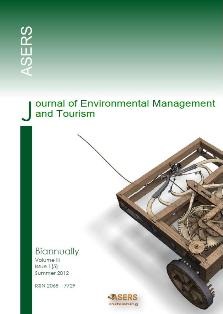INTERNATIONAL TOURISM AND ECONOMIC GROWTH IN THAILAND. COINTEGRATION AND THE GRANGER CAUSALITY
INTERNATIONAL TOURISM AND ECONOMIC GROWTH IN THAILAND. COINTEGRATION AND THE GRANGER CAUSALITY
Author(s): Harasarn Anothai, Chancharat SurachaiSubject(s): Economy, Tourism
Published by: ASERS Publishing
Keywords: economic growth; tourism development; Thailand
Summary/Abstract: The purpose of this paper was to investigate long-run and short-run relationship between income and tourism demand, focused on an econometric model test. Moreover, this paper filled the gap in research as it compared the relationship between tourists from five important countries who visited Thailand as a destination country. The Engle and Granger cointegration method was used to explore the relationship between income and tourism demand. Before testing, researchers proved causality between income and tourism demand using the Granger causality test for the annual data from 1981 to 2012 regarding five important countries related to Thailand tourism. The results of the cointegration test indicated that there was a long-run relationship between tourists’ arrivals and income. The short-run relationship indicated that Korean tourists have the fastest speed of adjustment, the most loyalty to Thailand tourism, while Chinese tourists have the slowest one. Moreover, empirical evidence showed that England has a bidirectional relationship. A unidirectional relationship growth leads tourism in Japan and Korea. In contrast, tourism leads growth in China. This study identified that there was no causality relationship with Malaysia. These finding are important for policy makers who formulate tourism policy to enhance tourism development and economic growth.
Journal: Journal of Environmental Management and Tourism (JEMT)
- Issue Year: V/2014
- Issue No: 02 (10)
- Page Range: 237-248
- Page Count: 12
- Language: English
- Content File-PDF

